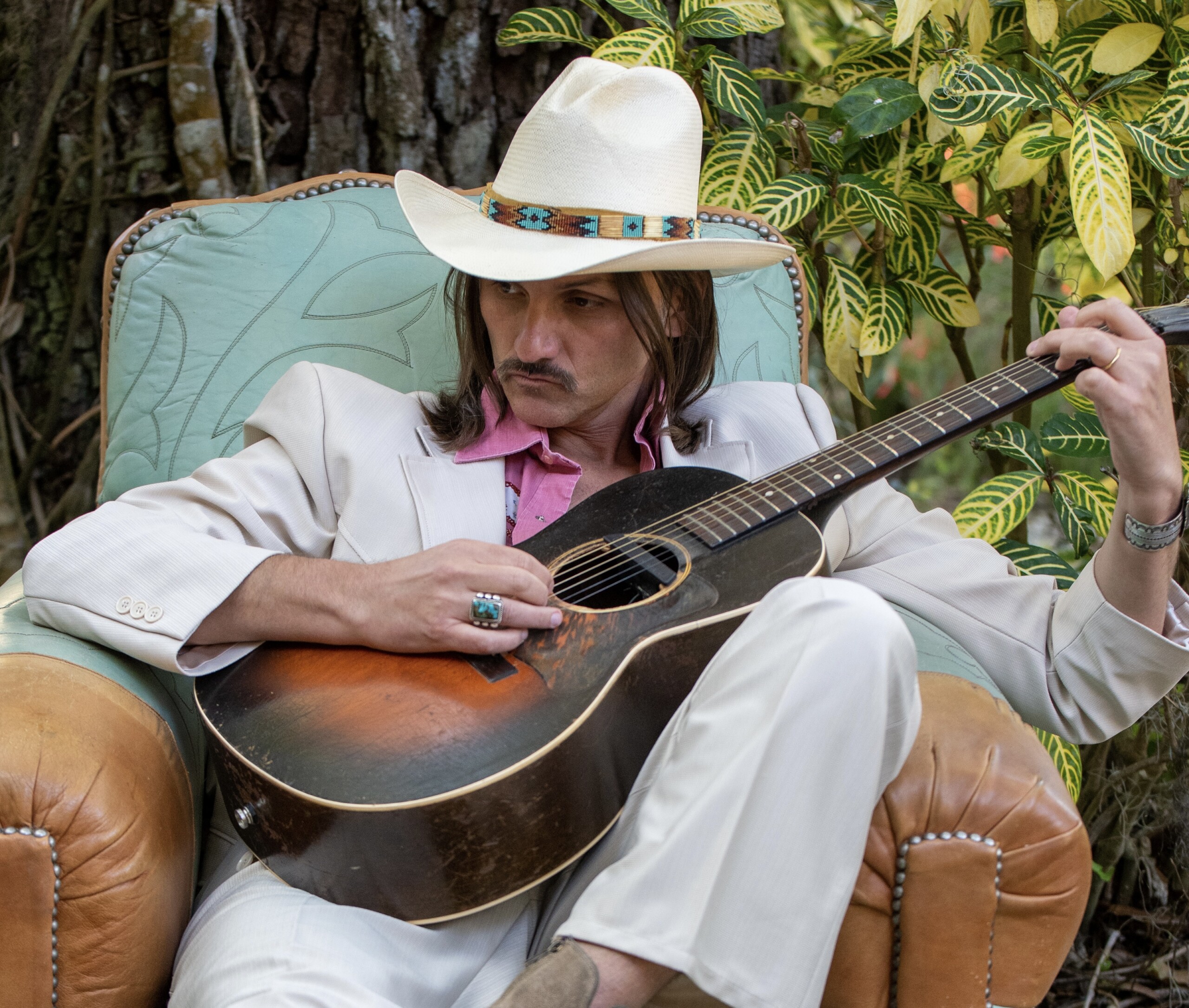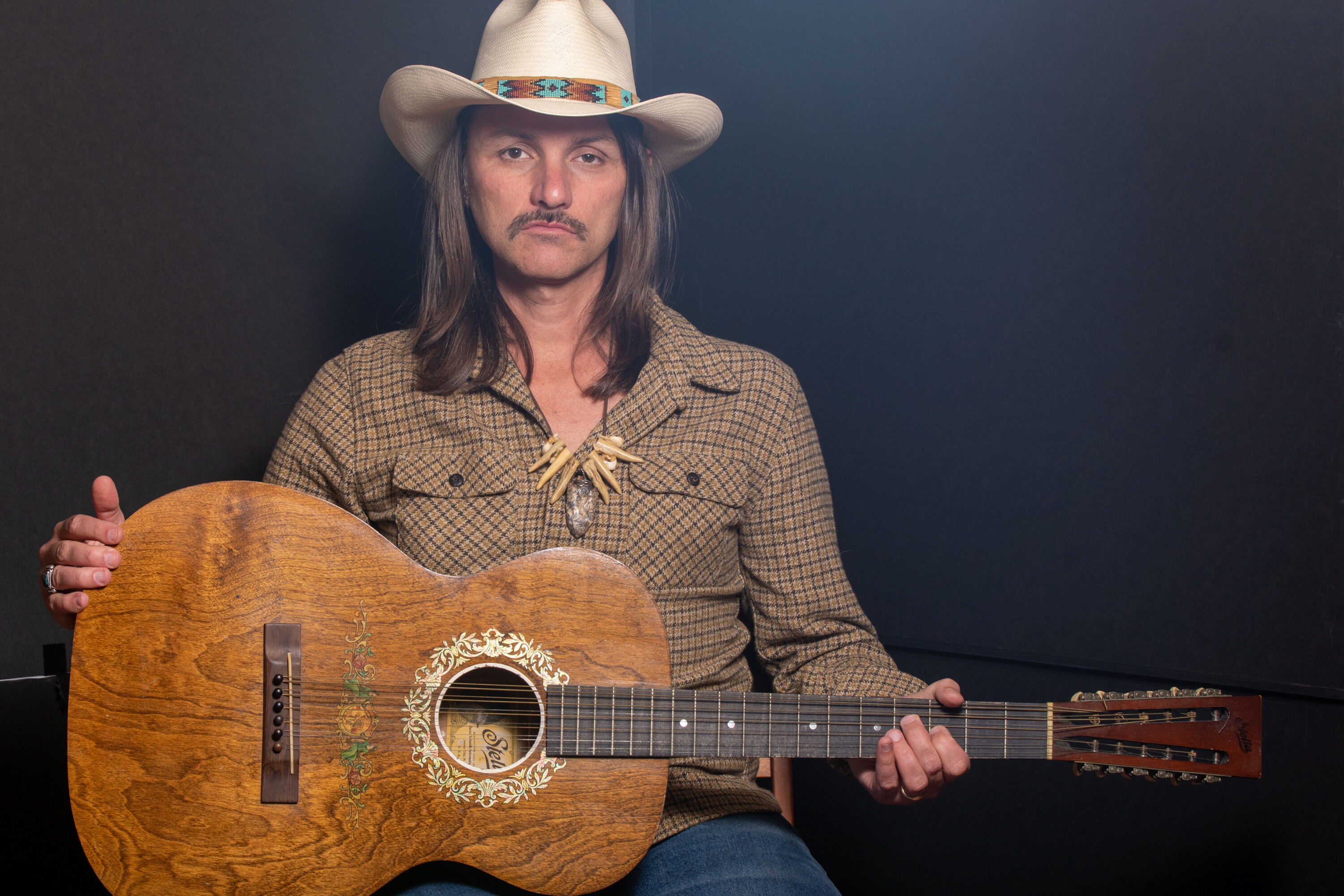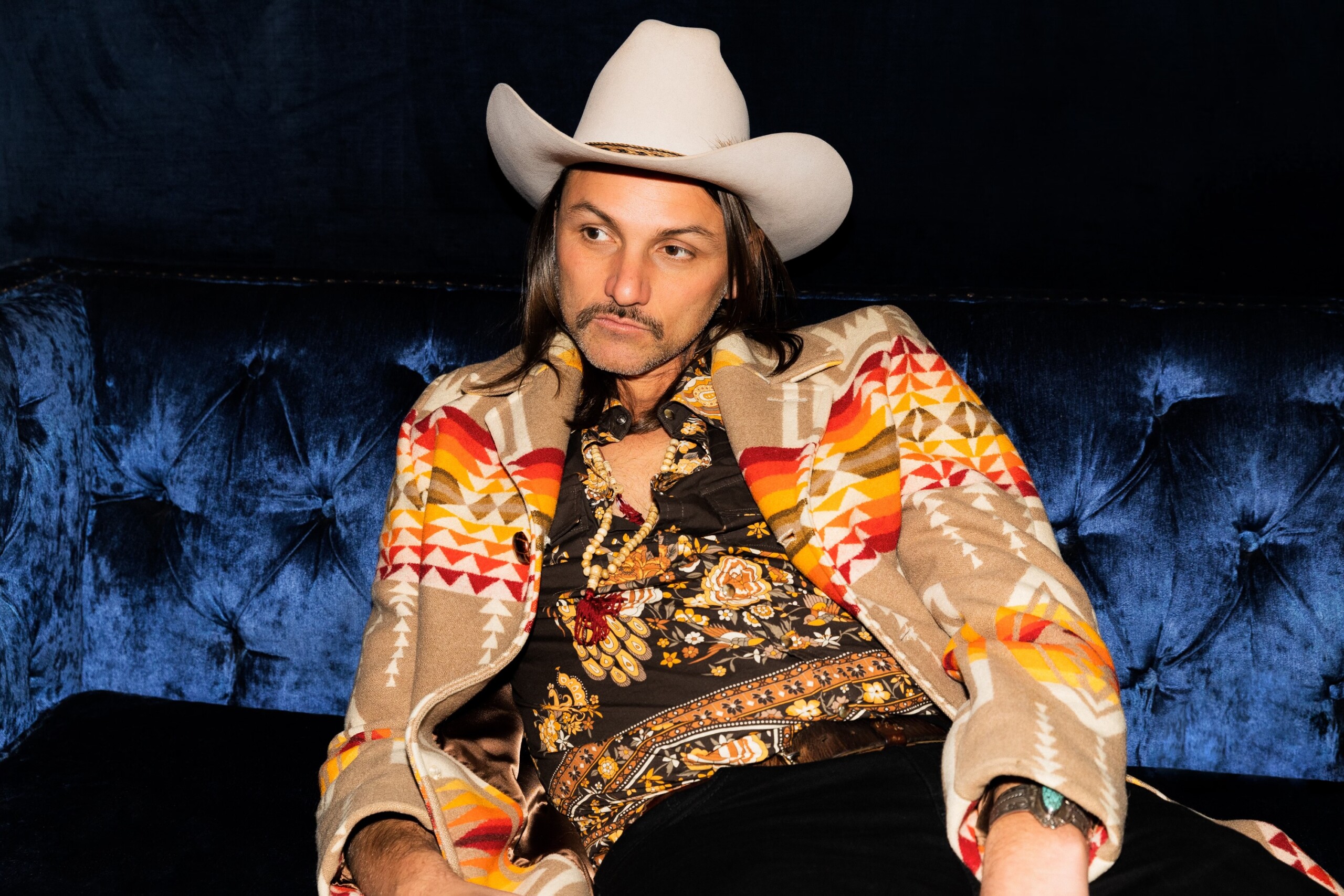
When Duane Betts and his band Palmetto Motel hit the stage at Downtown Jacksonville’s Intuition Ale Works on Sunday, July 16, they’ll be performing mere miles from where the Allman Brothers Band formed more than fifty years ago.
As the son of founding ABB member Dickey Betts, the now-45-year-old Duane was born within a direct lineage of that elder band’s legacy, which has permeated an array of artists, scenes and musical approaches. Betts spent a decade playing with his dad and co-founded the Allman Betts Band. The latter group also features descendants of the Allman Brothers: singer-guitarist Devon Allman (son of Gregg Allman) and bass guitarist Berry Duane Oakley (son of Berry Oakley).
Yet Duane Betts is hardly defined by that heritage. Since the nineties, the Sarasota native has also played with bands like west coast rockers Whitestarr, Backbone69, and even indie-folk faves, Dawes; groups that are removed from the Allman Brothers and jam-band multiverse.
Betts is touring in support of his first full-length release, Wild & Precious Life, a 10-song collection that runs the gamut from neo-Southern Rock and heavy electric blues to jazz and gritty psychedelia. Recorded at Derek Trucks and Susan Tedeschi’s Swamp Raga Studio, located at their home in Jacksonville, the album finds Betts deftly supported by his band comprised of guitarist Johnny Stachela, bassist Berry Duane Oakley, keyboardist John Ginty and drummer Tyler Greenwell. Guest performers on the album include guitarist Marcus King, vocalist Nicki Bluhm of The Gramblers and Trucks, who serves up slide guitar on “Stare at the Sun.”

Jacksonville Music Experience spoke with Betts as his band kicked off their tour in support of his debut solo effort, and we spoke about the production of the album, taking the songs to the live stage and his journey of getting clean.
So you’re about two days into the tour? How have the shows been?
Yeah. We’re two days into the tour. We’re in Virginia Beach, Virginia. Yeah, and it’s going really good.
Right on. How has it been translating the new songs onto the live stage?
It’s been really good. You know, they’re kind of still taking shape, live. We haven’t yet included the keys yet. John Ginty is on the keys and he hasn’t been with us. So when we play in Jacksonville, we’ll have the full five-piece band. But, you know, the songs are going over really well. And we just look forward to adding more and more as the record comes out.
I’m curious, just out of the gate, as far as an improviser, what is your approach to spontaneously composing in a live performance? Do you like to stay rooted in the chord progression or do you just try to let go and see what happens?
That’s a good question. Sometimes I make it a point to go in a completely different direction than I did the night before. If it’s something that’s really kind of drawn out, if it’s a long jam, I will kind of make sure to not do the same thing every night. And I’ll take a different approach, and I’ll try new things. But yeah, a lot of that can depend on what other songs are on the set. If there’s something that was melodically somewhat similar or close to it, then I’ll play differently, based upon not being too repetitive. And a lot of times I just try to let go and try to intertwine melodies and try to tell a story with the melodies and try to build it up.
Yeah. It seems like with your current band, you have pretty tight roots with those specific players. Do you feel like that invites more trust where you know, “Okay, if I go this way, they’re going to have my back”?
Yeah, anytime and with whoever I’m playing with, I want them to listen to me and be able to listen to whoever is soloing. Really everybody needs to be listening to everyone actually, at all times. So whoever’s playing and kind of leading it, the band kind of needs to move melodically in that same direction. And a band needs to kind of move melodically and harmonically with the soloist wherever the leader is taking them. Like Phil Lesh has bands that do that: they don’t really do guitar solos, they kind of just all move together and kind of weave in and out. Which is a little different but that’s kind of when people are really listening.
Tell me about the production of the new album, Wild & Precious Life. You recorded it in Jacksonville at Derek Trucks and Susan Tedeschi’s Swamp Raga Studio located on their property – How was the vibe?
It was really comfortable. And the atmosphere and the surrounding nature, the woods, and being able to walk through this kind of the swamp down to that river. It’s just a really ideal setting for recording a record and being close to nature. With some records you might want to record in New York City or in a big concrete jungle, if that’s the vibe you’re going for. But for this one with the feeling of the songs, and you know, and where I come from, it kind of makes sense to keep it down home. So when the opportunity arose for us to record there, it was kind of a no-brainer to take them up on the offer.
I feel like Susan and Derek are kind of the finest music ambassadors that Northeast Florida has to offer. They’re both authentic people and heavyweight players.
They’re fantastic. They’re really great people. And yeah, they’ve always been super kind and really friendly to everyone. I’ve never seen them not be friendly to anybody. So yeah, they’re just really good people. That’s something that I value.
Yeah. And so you recorded the tunes live in the studio with the band to analog tape. On your website you stated your goal was to make “a record which would really capture that old school Florida vibe.” Do you think playing live in the studio helped you accomplish your goal?
Yeah, I think what we set out to do is just get something that really felt like there was a life of its own that was developing in the room, as we were working out the songs. But also not have it just sound like some guys jamming. And that studio sounds amazing. It doesn’t sound like it’s lo-fi: the recordings are really high quality. The drum sounds are amazing and all of the sounds are really top notch. We recorded live but it’s not all live. I went back and re-did some of my solos and we added some tracks to vocals. But yeah, I mean, we definitely wanted to cut the songs live but if we felt like we could make it better we would go back in and repair some stuff. But analog tape just sounds so good. You can make really great-sounding records, digitally. But we had the opportunity to record in analog so we thought, “Why not?” With a lot of the songs we kind of knew how they were gonna feel. The only real question mark was the song “Under the Bali Moon.” Tyler Greenwell really kind of rearranged that song and turned it into what it is. And that’s why he has co-writer credit because it wouldn’t be what it is without him.
Yeah, that particular tune is a cool curveball on the record because it’s the one song that has more-overt jazz chords.
Yeah, I wanted to get away from doing something that was really derivative sounding—not that it’s wrong. You know, it still has some of the influences but it’s like, “Well, this sounds different.” I think that was really important to what I wanted with “Under the Bali Moon,” which had some of the characteristics of some of those great instrumentals, but it wasn’t really derivative in any way. In fact, the main theme melody I kind of lifted from a Jeff Buckley tune from Grace. But I think “Under the Bali Moon” has a nice mysterious quality.
Derek traded solos with you on “Stare at the Sun,” which has a really nice minor-key and darkly psychedelic energy to it. I’ve read that the song is a tribute to your dad after Derek remarked that Dickey “is one of those players who’s not afraid to stare directly into the sun.” What was it like getting into the emotional space to write it?
I just picked up the acoustic and started playing and the lyrics started coming through. And when I was writing I explained to Derek what I was thinking and feeling and he had already volunteered to play on a song; so I had to pick the song. So I told him the correlation between some of the lines and it felt like this heavy kind of tribute. Yet very indirectly; I never thought of it as a tribute but I guess in a roundabout way it is.
It’s a poignant tune.
Yeah, it’s definitely poignant and there’s a weight to it.
The press release for Wild & Precious Life says that the songs were written in a “state of deep reflection” during your “journey towards sobriety.” Would you be willing to talk about how that journey began?
Yeah, I mean all of this has been a journey. And I started pulling my life together and then I had a couple of stumbles along the way and then finally, in 2016, I tried [recovery] again, and I started getting somewhere with it. And then I met my wife, and everything just kind of started happening. And once things started happening you just kind of realized that there’s no reason to think about going back. And this album and where I’m at is kind of the culmination of a lot of hard work and a lot of persistence and perseverance to get to this point. I was doing the Allman Betts Band, and that was kind of a safe bet and I can go out and make a pretty decent living. But I really wanted to do this [album] and I felt like this was something I had to do. And I don’t think any of it would be really possible if I wasn’t clean.

Sometimes when addicts get clean, they talk about “putting the disease to work.” At the highest level, someone like John Coltrane really became almost monastic in practicing and dug into his playing and spirituality after he got clean. Do you think your creative drive increased after you get clean?
Yeah, I kind of felt like I had to make up for lost time. But you don’t want to ever regret the past since you can’t really change anything about it. Or second guess yourself, wondering “What would have happened if I would have pulled it together earlier?” I have been able to just kind of look at the whole thing as a journey. And I’m here now for a reason. And this is my time now. So I just feel like I’m doing what I’m supposed to be doing now. As addicts, we sometimes want a huge reward or a pat on the back for not sticking our finger in the light socket (laughs). Being clean is something to appreciate and to celebrate, but I just kind of try to go on with my daily life and do the right thing. It’s not rocket science.
Your choices as a player have stepped outside the line of many of your peers. You not only play with other musicians directly connected to the Allman Brothers Band lineage like your dad and Devon Allman. You worked with Dawes, who are more of an indie-folk band. What are you looking for as far as a musical environment to participate in?
I like to play with folks that I respect. I like getting out of the Allman Brothers universe, although it’s obviously part of my heritage and I’m proud to kind of represent that and carry that flag. But I do like it when I get pulled out of that and I can play with people that aren’t so intertwined in that. Most musicians know the Allman Brothers kind of language and lineage so it’s not like I am stepping totally out of that universe playing outside of that scene. But I do like to explore totally different musical environments and see what can happen.
\Duane Betts and Palmetto Motel perform at 8 p.m. on Sunday, July 16 at The Bier Hall at Intuition Ale Works. The show is standing-room only and tickets are available here.

Mr. Al Pete and Notsucal Release Their Latest Collab, ‘G4.5’

Dinner Party, Tom Misch and More from the Neighborhood with Mr. Al Pete

An Ultra-Chill Playlist from the Latest Episode of Electro Lounge

Sing Out Loud Festival Returns With Hozier, Beabadoobee, Father John Misty, Vance Joy and More

Chicago Alt-Country Faves Wilco Return to St. Augustine with Indie-Folk Great Waxahatchee

Looking for an Alternative to Spotify? Consider Hopping on the band(camp) Wagon

Khruangbin to Bring ‘A LA SALA’ Tour to St. Augustine in April

Perfume Genius, Flipturn, Tamino + Mitski and 6 New Songs to Stream

Song of the Day | “all tied up” by Glixen



